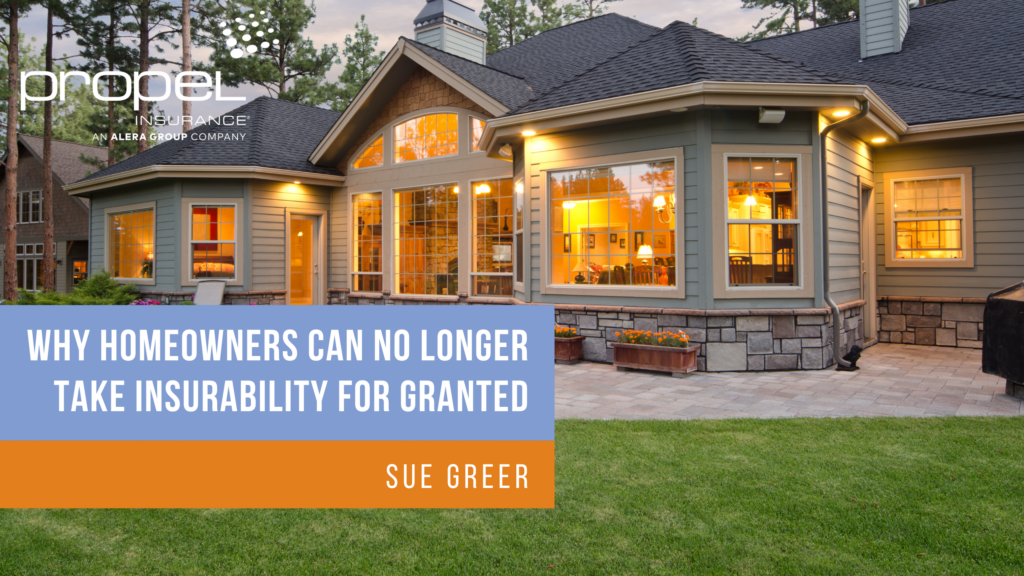Propel provides innovative insurance solutions to thousands of companies across the country. We make it our business to know your world inside and out.
Insights, Personal Lines
Why Homeowners Can No Longer Take Insurability for Granted
As a homeowner, you probably haven’t spent a lot of time thinking about insurance. It’s something you need that is readily available – or at least it was … until now. Now, some homeowners are unable to find an insurance company willing to insure their homes. Others face steep rate increases. These homeowners aren’t just living in California forests either. Some reside in suburban Washington neighborhoods. Thanks to climate change and wildfire risk, we can no longer take insurability for granted. Here’s what to expect and what you can do.
Climate Change Is Fueling Record Losses
Losses from natural disasters and severe storms have been increasing steadily. According to the National Oceanic and Atmospheric Administration (NOAA), the U.S. experienced 28 events that each had losses of at least $1 billion in 2023 – a new record.
Swiss Re says insured losses from severe thunderstorms broke another record in 2023. Losses came to $60 billion, which is almost 90% higher than the previous five-year average and more than double the previous 10-year average.
In both cases, the new records indicate the continuation of a pattern. Swiss Re says thunderstorm losses have been increasing by 7% annually, whereas data from NOAA shows that the average number of billion-dollar events has increased steadily since the 1980s, even when adjusted for inflation.
Insurance Carriers Are Reining In Their Exposures
Rising losses have put pressure on insurance companies. Many are responding by raising rates or exiting difficult markets.
On the West Coast, wildfire losses have been the driving force. AP News says eight insurance companies in California have requested rate increases of at least 20%, whereas Bankrate says seven of the 12 largest home insurance companies in the state have either paused new home insurance or greatly limited new coverage since late 2022.
The problem isn’t limited to California: HousingWire says Washington is the latest state to see insurance carriers pull back. According to Seattle Times, complaints to the Washington state insurance commissioner have surged as policyholders face coverage cancelations. Areas in eastern Washington, including Suncadia and Leavenworth, are particularly difficult to insure.
Furthermore, it’s not just rural homes in woodland areas that are in danger. The Orange County Fire Authority warns that fire embers can travel up to five miles from the active front of a wildfire. The embers may ignite plants and burn combustible siding, doors, and window frames. The heat can also shatter windows. Once this happens, the embers can enter the house. Since fires can spread so easily and embers can travel so far, even houses located in suburbs may be at risk. As a result, insurers may consider suburban houses to be high risk.
The Impact on Policyholders
Insurance options are becoming increasingly limited as insurance companies pull out of difficult markets. When insurance carriers are willing to write coverage, they may raise prices by 30% to 40%. Some homeowners have even seen their rates double.
If insurers consider your region to be high risk, there’s not much you can do, apart from moving. However, there are steps you can take to make your property resistant to wildfires. These proactive measures will protect your home from a devastating loss while making your property more attractive to insurance carriers.
The Firewise USA program from the National Fire Protection Association (NFPA) provides a framework to help communities reduce their wildfire risks. In this program, a committee of volunteers works with local wildfire experts to identify and implement wildfire risk reduction and improvements.
The NFPA says it’s important to eliminate hazards from the Home Ignition Zone, which spans 200 feet from the foundation. Homeowners should manage landscaping to reduce fuel and create breaks that will prevent the spread of fire in this zone.
The NFPA lists simple steps homeowners should take to reduce their fire risks:
- Clean dead leaves, debris, and pine needles from roofs and gutters.
- Replace or repair missing or loose roof tiles or shingles.
- Install 1/8-inch metal mesh screening on vents.
- Clean debris from exterior attic vents and install 1/8-inch metal mesh screening.
- Repair or replace damaged or loose window screens and broken windows.
- Screen or box-in areas below patios or decks with wire mesh.
- Move flammable materials away from wall exteriors.
- Remove anything stored under decks or porches.
Tips for Securing Coverage
Hardening your home against fire is the most important thing you can do to improve your chances of finding affordable coverage. Although it may still be difficult to obtain insurance, finding coverage may be impossible without these proactive measures.
Other steps to consider:
- Thoughtfully consider the pros and cons of switching carriers. Since insurance rate hikes are happening across the board, changing providers won’t necessarily result in savings and could inadvertently result in narrower terms. When making a change, be sure to choose options that offer more value with improved and broader coverage terms.
- Consider secondary insurance markets. If preferred carriers won’t offer coverage, your broker may be able to find insurance through Lloyd’s of London markets. Only an independent broker, like Propel Insurance, can access multiple insurance carriers on your behalf, including secondary insurance markets. We can assemble a complete program when one insurance company cannot offer coverage for all your family’s needs.
- Take on more risk. If premiums are high, see if you can lower your rates by taking on more risk. You may be able to revisit deductibles, personal property limits, coverage for structures other than your house, and additional coverage types. In some cases, self-insurance is the only option.
In this difficult market, you need an insurance expert in your corner. At Propel, we offer access to both preferred carrier markets and secondary markets. We help our clients explore all their options. Our clients always come first. If we can’t solve your insurance challenges ourselves, we’ll suggest other solutions that may help you. Your Propel broker will keep you informed and let you know what to expect. The unknown is scary – we want you to be prepared.

Sue Greer
Sue is an expert in crafting customized solutions for individuals that provide the protection they need for home, auto, boat, recreational vehicle, and prized possessions.
More about Sue...


